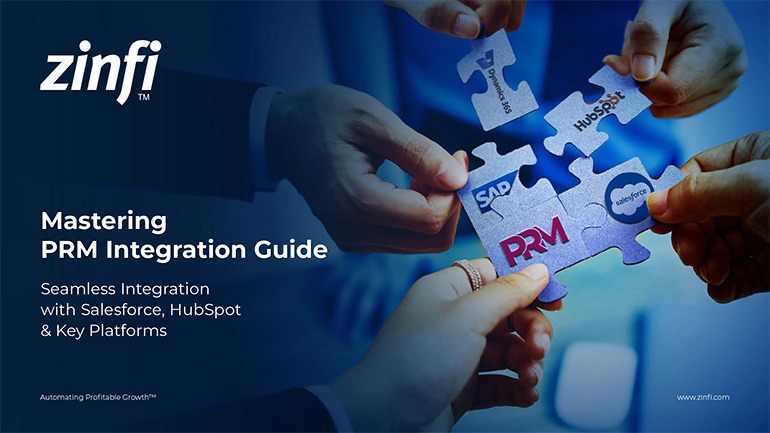Glossary - How to - Channel Partner Relationship
How to Build a Relationship with a Channel Partner?
Introduction
Understanding Channel Partners
A channel partner is an organization or individual that collaborates with a vendor or manufacturer to market and sell their products or services. These partnerships are crucial for companies looking to expand their reach, enhance customer engagement, and drive revenue. Channel partners can include value-added resellers (VARs), system integrators, managed service providers (MSPs), and distributors. Their role is vital in industries where indirect sales models dominate.
Building strong relationships with channel partners ensures better alignment, increased sales, and sustained business growth in today’s competitive market. Companies that invest in structured partner programs benefit from higher efficiency, improved brand visibility, and a competitive edge in their industry.
Importance in Partner Relationship Management (PRM)Key Takeaways:
Partner Relationship Management (PRM) platforms help organizations automate and streamline their interactions with channel partners. These platforms provide a centralized system for managing partner onboarding, training, marketing, and performance tracking. Businesses leveraging PRM systems experience:
- Enhanced partner engagement and loyalty
- Efficient lead distribution and deal registration
- Better communication and collaboration
By effectively utilizing PRM tools, businesses can build productive relationships with channel partners and achieve mutual success.
Key Takeaways:
Establish Clear Communication and Goals:
Successful channel partnerships rely on open and consistent communication. Defining objectives, responsibilities, and expectations ensures that both parties work toward shared business goals. Best practices include:
- Hosting regular meetings and webinars
- Providing clear guidelines on sales targets
- Implementing structured feedback mechanisms
Provide Comprehensive Partner Training:
Training equips channel partners with the necessary skills and knowledge to sell and support products effectively. A well-structured training program includes:
- Product knowledge sessions
- Sales and marketing workshops
- Certification programs for credibility
Develop a Strong Incentive Program
Motivating channel partners through well-designed incentives fosters engagement and higher performance. Effective incentive programs may include:
- Volume-based discounts and commissions
- Performance-based rewards and bonuses
- Co-marketing funds and support
Leverage Technology for Better Collaboration
Adopting a PRM system allows companies to automate workflows, track partner performance, and provide real-time data. PRM tools enhance:
- Lead management and distribution
- Content and resource sharing
- Sales analytics and reporting
Foster Long-term Partnerships with Trust and Transparency:
Building a lasting relationship with channel partners requires trust and transparency. Companies can strengthen partnerships by:
- Offering consistent support and resources
- Maintaining open dialogue for problem resolution
- Aligning business goals for mutual growth
Summary of Key Takeaways:
Businesses must focus on communication, training, incentives, technology, and trust to build a successful relationship with a channel partner. Implementing PRM solutions further enhances collaboration and efficiency, ensuring long-term success.
Key Examples:
- Automotive Manufacturing: Manufacturers partner with dealers and distributors to expand market reach. Offering exclusive training and performance-based incentives ensures better sales and customer service.
- Consumer Electronics: Consumer electronics brands rely on resellers and retailers to distribute their products. Utilizing PRM systems helps manage inventory, sales reporting, and marketing campaigns.
- Energy Production: Energy companies collaborate with engineering firms and technology providers for efficient deployment. Strong partnerships involve technical training and co-marketing initiatives.
- Financial Services: Banks and insurance firms engage brokers and agents as channel partners. Providing digital tools and structured incentive programs enhances collaboration and performance.
- Food and Beverage: Food manufacturers partner with distributors and retailers to reach consumers. Transparent pricing models and sales support are crucial to maintaining strong relationships.
- Healthcare Services: Medical equipment companies rely on sales agents and hospitals as channel partners. Successful product training and compliance support are critical for successful collaboration.
- Information Technology: IT vendors work with MSPs, VARs, and integrators to sell software and hardware. Implementing a PRM system improves deal registration, training, and partner incentives.
- Pharmaceutical Development: Pharmaceutical firms partner with medical distributors to expand their product reach. Providing regulatory support and marketing resources strengthens these partnerships.
- Retail Industry: Retail brands collaborate with e-commerce platforms and brick-and-mortar stores. Co-branded marketing efforts and sales training programs ensure optimal performance.
- Telecommunications: Telecom providers work with resellers and network integrators. A well-structured channel partner program helps manage commissions, training, and customer support effectively.
Conclusion:
Building a successful relationship with a channel partner requires clear communication, strong training programs, well-structured incentives, advanced technology adoption, and trust. Leveraging PRM platforms enhances collaboration, streamlines operations, and drives revenue growth. Companies prioritizing these strategies will foster strong, long-term partnerships and stay ahead in their respective industries.
Associated Keywords:















